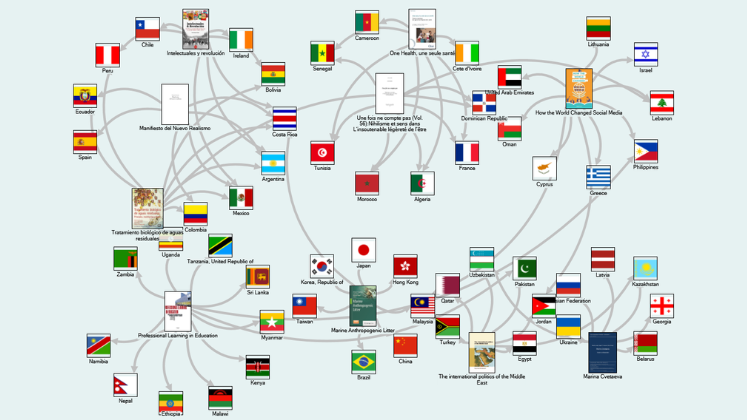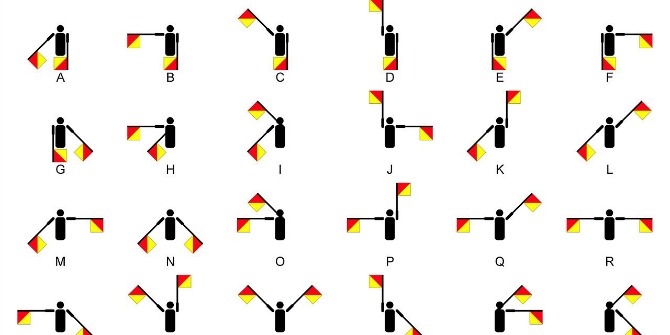The working group which first released the Finch Report on expanding access to published research in June 2012 has issued a new progress update. Following the UK government’s unilateral acceptance of these recommendations, criticisms have mounted against this so-called ‘push for Gold Open Access’. Stevan Harnad responds below to the new document from the Finch Group (hereafter referred to as Finch II), arguing that this review has largely failed to address the most pressing criticisms of the original report.
Finch II: “Our Mind’s Mind Up. Don’t Confuse Us With Facts”
From Finch II: Accessibility, Sustainability, Excellence: A Review of Progress in Implementing the Recommendations of the Finch Report (October 2013) [pdf]
Our review is based on a rigorous analysis of evidence from a wide range of sources.
Hardly. The Finch II review is in fact a very selective re-hash of opinions and opinion-surveys, with nothing faintly resembling the objective evidence called for by the BIS Select Committee.
This exceedingly long, rambling, incoherent new Finch report has very little that is new or substantive; it is mostly vague, self-congratulatory sloganeering. But its thrust is clear: Despite all the objections and counter-evidence to Finch I, and despite the very trenchant and specific critique and recommendations of the BIS Select Committee, Finch II is simply digging in its heels and sticking to what it said in Finch I.

This is clearly the result of remarkably successful lobbying by the UK journal publishing industry (aided and abetted by a small fervent minority of OA advocates who consider free online access insufficient, and insist on paying extra for a CC-BY license that allows re-use, text-mining, re-mixing and re-publication) — plus a good deal of woolly-mindedness (and perhaps some pig-headedness too) in the Finch Committee and its advisors (e.g., the Wellcome Trust).
The most important amendment grudgingly admitted by Finch II is that UK researchers are now free to choose between providing OA via the Green route (of publishing articles in any journal at all, by making the article OA in a repository after any allowable publisher embargo has expired) or via the Gold route (by paying the publisher [pure Gold or hybrid] to make the article OA immediately [with a CC-BY license]).
I will not rehearse again the many reasons why paying for Gold OA is a waste of UK public funds, double-paying arbitrarily inflated “Fool’s Gold” fees to publishers for the UK’s outgoing 6% of worldwide research, over and above paying subscription fees to publishers for all incoming research. The fact is that Finch has now conceded that researchers are free to choose whether or not to pay for Gold, so UK researchers need not waste money on Fool’s Gold unless they wish to. Author choice is restored.
Moreover, Green OA embargo length limits will not be enforced for at least two years (Finch/RCUK are instead focussing all their attention on monitoring how the Gold funds are being spent).
And Finch II also seems to have grudgingly conceded that the parallel HEFCE addendum — requiring that in order to be eligible for REF2020, all articles must be deposited in the author’s institutional repository immediately upon publication (not after an embargo, nor just before REF2020) — is likely to be adopted.
This concession should not have been grudging, because the HEFCE/REF addendum in fact provides the crucial missing component that will make the Finch/RCUK mandate succeed, despite Finch’s preference for Fool’s Gold: It provides the all-important mechanism for monitoring and ensuring timely compliance, by recruiting institutions (ever ready to do anything they possibly can to increase their chances of success in REF) to ensure that deposit is immediate, even if OA is embargoed. (During any embargo the institutional repositories also have the automated copy-request Button, which enables users to request and authors to provide individual copies for research purposes with just one click each.)
Finch II nevertheless continues to crow about the Finch Policy serving as a beacon for the rest of the world:
It is clear also that our 2012 Report and the subsequent policy developments have proved a catalyst for activity not only in the UK, but internationally.
In point of fact, apart from the UK, the only other country with a Finch-like preference for Gold is the Netherlands, as has just been announced, almost simultaneously with the Finch II. It is no coincidence, of course, that the UK and the Netherlands are the hosts of the world’s largest journal fleet publishers, who have been feverishly lobbying worldwide against mandating Green and for instead funding Gold. The lobbying has had no success anywhere else on the planet, which now has over 80 funder OA mandates and over 200 institutional OA mandates, all of which are Green, except for the UK. (The Netherlands has not mandated OA at all, but threatens to emulate the Finch/RCUK preferential-Gold mandate in 2 years if there is not enough voluntary response.)
So, no news from Finch II, but promising prospects for a HEFCE/REF immediate-deposit requirement that will make the Finch/RCUK Green option succeed.
There are some telling signs, however, of just how fully Finch is in the thrall of the publisher lobby: Open Access is about access to research, yet Finch keeps referring to a “mixed economy” and a “transition,” as if OA were about publishers’ business models, hence about publishing economics, rather than about research access and impact, and as if the goal were Gold OA, rather than OA itself:
We hold to the view that a transition via a mixed economy to Gold OA, where publication costs are met mainly by the payment of [Gold OA fees], is the most effective way of balancing our [sic] objectives of increased access, sustainability and excellence.
This is also a good point to look more closely at “our” “sustainability” objective: What is it that “we” (who is “we”?) must be be careful to sustain, in the transition to OA: peer-reviewed research? or publishers’ current revenue streams?
And who is to determine the terms and timetable for the transition to OA? The research community? or whatever (and however long) it takes to sustain publishers’ current revenue streams?
Finch seems to have accepted wholesale that publishers are justified in embargoing Green OA in order to sustain their current subscription revenues — and that the UK (double-) paying publishers’ asking-price for Gold OA (as determined by whatever it takes to sustain their current revenue levels) is the fastest and fairest way to make a transition to 100% OA. But what is in reality being sustained here is publishers’ current revenue levels, not peer-reviewed research itself. And publisher embargoes on Green OA are being used to hold back the “transition” timetable for as long as it takes till publishers’ terms are met: ”
…a transition to open access (OA) over an extended period that would be characterised by a mixed economy.
To illustrate how fully Finch has identified itself with publishers’ interests and their attempts to hold OA hostage to publishers embargoes and agenda:
We cannot agree… with those who urge policies based solely on Green OA with short or zero embargoes, a position which derives from an exclusive preference for Green OA, rather than a mixed economy. There is a balance to be struck between embargo lengths that provide speedy access on the one hand, and sustainability for subscription-based journals and the business models that underpin them on the other.
Finch II has internalized without reflection — as if it were a law of nature, rather than merely a publisher-imposed, self-fulfilling prophecy — the canard that Gold OA means immediate OA and Green OA means delayed OA (delayed because publishers embargo it!): The two options are accordingly defined by Finch II as:
immediate free access to publications with the costs met by [Gold OA fees], often referred to as Gold OA… or free access via repositories after appropriate embargo periods, often referred to as Green OA.
In point of fact, over 60% of subscription journals do not embargo Green OA (though Finch certainly seems to be doing its level best to give them the incentive to do so!).
Finch II has also re-affirmed its support for negotiating a Really Big Deal — an extended national license scheme to “sustain” subscription access during the “mixed economy” transition. Translation: Publishers are to be granted their fondest wish of being paid a still bigger UK national license fee for all incoming subscription content, over and above the Finch funds to be paid them for (Fool’s) Gold OA. The UK here will be collaborating in the fulfilment of publishers’ fantasy scenario (see Appendix)…
Finch II also proposes to
monitor the impact of OA policies on learned societies… [because they] start from different positions in engaging with the transition to OA.
The only relevant question is whether Learned Society publishers are any more justified than commercial publishers in embargoing access to Learned Research in order to “sustain” their current revenue streams. Apart from that, post-Green Fair-Gold publishing will be as open to Learned Society publishers as to commercial publishers, if and when globally mandated Green makes subscriptions unsustainable. In place of whatever Learned Society publishing revenues were supporting “good works” such as meetings and scholarships, these good works can go on to fund themselves (via membership dues and registration fees) instead of being subsidized by lost Learned Research impact.
Finch II closes with:
Our key recommendation is… to develop an interoperable system of repositories and an infrastructure that supports both Gold and Green OA.
We can all applaud that, thanks to HEFCE/REF. The requisite infrastructure will be the interoperable system of Green OA repositories, with immediate-deposit mandated for all refereed research output, Gold and Green, with or without embargoes, and with or without CC-BY.
This piece also appears on Stevan Harnad’s personal blog, along with an Appendix on Publishers’ Fantasy Scenario. His pieces on How to repair the new open access policy of RCUK and Why the UK Should Not Heed the Finch Report have previously appeared on the LSE Impact blog.
For the full text of the report discussed, see Accessibility, Sustainability, Excellence: A Review of Progress in Implementing the Recommendations of the Finch Report (October 2013).
Note: This article gives the views of the author, and not the position of the Impact of Social Science blog, nor of the London School of Economics. Please review our Comments Policy if you have any concerns on posting a comment below.
Stevan Harnad currently holds a Canada Research Chair in cognitive science at Université du Québec à Montréal (UQAM) and is professor of cognitive science at the University of Southampton. In 1978, Stevan was the founder of Behavioral and Brain Sciences, of which he remained editor-in-chief until 2002. In addition, he founded CogPrints (an electronic eprint archive in the cognitive sciences hosted by the University of Southampton), and the American Scientist Open Access Forum (since 1998). Stevan is an active promoter of open access.








1 Comments